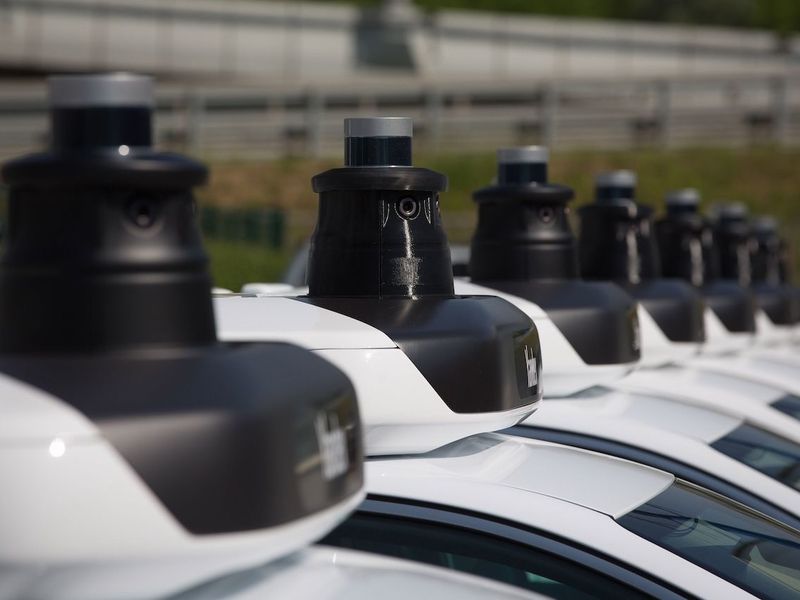
The Alliance for Automotive Innovation on Wednesday released a four-year action plan to guide federal policies and advance the testing and deployment of automated vehicles in the U.S.
The auto trade group’s AV policy road map makes 14 recommendations under three pillars that “reform regulations to allow for AV deployment at scale, harmonize federal, state and international policies and lay the foundation to achieve longer term objectives.”
Specifically, the alliance is recommending the U.S. Department of Transportation, Congress and state governments, where applicable:
- Create a vehicle class within the Federal Motor Vehicle Safety Standards for AVs.
- Clarify the applicability of the “make inoperative” prohibition for vehicles that are equipped with selectable AV features.
- Establish a national pilot program for AV testing and deployment.
- Improve the exemption petition process by issuing guidance that specifies what data is required as part of the application.
- Enact legislation to raise the existing cap on temporary exemptions that can be granted to AVs.
- Embrace innovative regulatory approaches that match the pace of technological advancement.
- Enact legislation to clarify federal and state roles related to AVs.
- Establish a federal grant program to provide funding to states working together to standardize policies on AV testing and deployment.
- Align state traffic laws and regulations.
The alliance said its action plan — which also includes recommendations on roadway infrastructure and possible incentives to support R&D of AVs — paves the way for long-term national success, defines federal and state roles and outlines another pathway to AV deployment with federal oversight.
“The United States has long led when it comes to automotive innovation and safety technology, and AVs are the next step in maintaining our technological edge,” John Bozzella, CEO of the alliance, said in a statement. “We look forward to partnering with policymakers at both the federal and state levels to harness the vast potential of AV technology to make transportation safer and more accessible.”
Members of the alliance include General Motors, Ford, Toyota, Volkswagen and other major automakers in the U.S. It also represents some tech companies and auto suppliers such as Aptiv and Bosch.
House lawmakers, including Rep. Debbie Dingell, have said they’re set on prioritizing an AV bill early in the 117th Congress after earlier attempts at passing legislation stalled in the Senate.
“Self-driving legislation will always be a top priority of mine because it is essential to ensuring the United States stays on the cutting edge of innovation and technology,” Dingell, a Michigan Democrat, said in a statement to Automotive News. “In the months ahead, I will continue to work with stakeholders, congressional colleagues and the new administration to get this done.”
The alliance’s action plan comes after another group on Monday released its own outline for AV legislation that prioritizes safety, equity, accessibility and sustainability.
The diverse coalition includes Advocates for Highway and Auto Safety, Center for Disability Rights, Transportation for America, Consumer Reports and other stakeholders that are urging federal lawmakers to use the framework as a guide to ensure public safety.
No automakers or technology companies that are investing in AVs were listed as supporters of the coalition’s tenets as of Monday.
“There are undeniably other policy issues beyond those covered in our roadmap that are critical to the broader AV policy discussion, including those that will contribute to greater acceptance and adoption of this technology,” said Hilary Cain, the alliance’s vice president of innovation and mobility policy, during a webinar. “We remain committed to working with policymakers and other stakeholders in the coming months and years to advance those important priorities.”
Advocates President Cathy Chase said the group has “serious concerns” that the alliance’s recommendations “prioritize mass AV deployment over needed oversight and performance standards to achieve these potential benefits.”
The group is asking the alliance to join its request for minimum performance standards for automated driving systems.
“Advocates has always been a steadfast champion of proven safety technology, which is why we continue to urge the U.S Department of Transportation to require advanced driver assistance systems (ADAS) like automatic emergency braking, blind-spot detection and lane-departure warning in new vehicles with minimum performance standards,” Chase said in a statement to Automotive News. “Not only will this technology save lives and mitigate injuries now, it will also help drivers get used to working with technology leading up to AVs.”